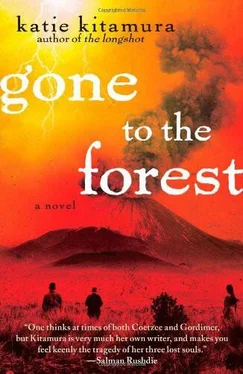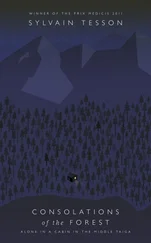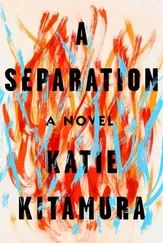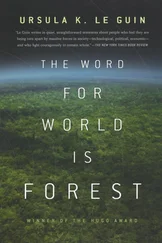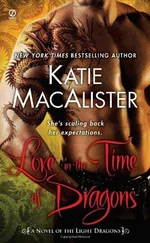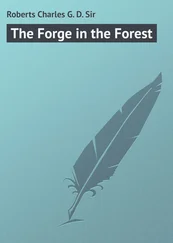“Oysters. Gnocchi. Lamb. Salad. Then cheese and ice cream.”
His father nods.
“The oysters?”
“They were brought in this morning.”
His father nods again.
“No fish?”
“No.”
“Why no fish?”
“I will ask Celeste.”
“Tell her to put out the last of the caviar. I have no need of it. And tell Celeste to set the table for five.”
Mr. and Mrs. Wallace are occasional friends. They are marginal people of no interest to his father. The old man has made that abundantly clear. He does not say who the fifth guest is. Tom waits. The old man looks up.
“Do you have something else to tell me?”
He thinks of the radio on the veranda. Who left it there? Tom shakes his head. No. Nothing. His father nods and Tom goes. He walks to the kitchen to look for Celeste. This time she is there, stuffing pastry for the farmhands. She palms the meat into the pastry and slaps the food down on the tray. He stares at the meat. It is pink and red and white. Raw and unformed. Celeste looks up.
“He wants to know if there is fish for tonight.”
She shakes her head.
“Ah no.”
“He would like fish.”
She sighs and wipes her hands on a tea towel.
“Why?”
He ignores the question.
“Also he says to serve caviar to start, and to set the table for five.”
She shakes her head. Tcha tcha tcha, her tongue in her mouth. She throws down the tea towel. Neither Tom nor Celeste wants to serve fish at supper. But both know there will now be fish alongside the lamb, an additional course in an already long meal. Celeste will dress the fish in saffron and butter. Jose will pass around the table with the platter resting on his arm, lifting slabs of fish to the plates. He will use the silver serving spoon to pool sauce on top. Tom clears his throat.
“Did you take the radio out to the veranda?”
She stares at him blankly.
“What do you mean?”
Tom nods, then leaves the kitchen and walks outside. The air is still. He stands outside the house.
Something is wrong. The tourist season has been a failure. It was supposed to refill the coffers. It was meant to provide security. But the season brought them nothing and now the money is running out. Everybody knows the money is running out. It is no longer secret, it can be seen everywhere on the farm.
But there will be caviar, and guests! He does not understand his father. He goes up the steps and into the house. He walks along the veranda, along the perimeter of the house. Everything is as it should be. He enters the dining room. The table has not been set. Five, the old man said to lay the table for five. Tom stands for a long moment. He looks at the heavy oak table and the chairs. He stares at the marble topped credenza.
TOM RETURNS TO the row of trees. He sits in idleness. It is the tempo of this place. It overtakes him, he has no resistance to it. It is true Tom is a good manager, but that is almost despite himself, fundamentally he is lazy. His father is different. His mother was different. His mother was like his father, she was not from this place. She was nervous, set to a tempo that was out of pace with the draw of the land.
It could not be changed. His mother came ten years after his father and left ten years ago, dead from exhaustion. They shipped her body back across the sea in a bare pine box at the request of her family. The life had been too much for her. His father said that the moment she set foot on the land. Nobody was surprised when she died. It took her twenty years to do it and they were surprised it took her so long. She had been dying the whole time. She was half dead when she gave birth to him and after that died by increments.
Tom remembered her sometimes. Early on she had been diagnosed consumptive. That was a disease from long ago, an illness that no longer existed, but it still managed to kill her. She ate up her body. In the last years of her life she burned through her organs and limbs, she combusted inside her skin. Like she was in a hurry and couldn’t wait any more. Sometimes he could smell the scent of her decay, lifting high off her body.
That was his mother. She gave birth to him and he slithered from between her legs and out into the land and dust. From the start he was of this place. He was country born and at home with the bramble. For the first year Celeste nursed him at her tit. She held him while he scratched and suckled. Celeste had a son exactly Tom’s age, Jose. She raised the two boys together. Jose’s father being nowhere in sight. However, the two boys did not grow up like brothers.
Jose was healthy, indefatigable, stubborn even as an infant. Tom, on the other hand, was not a strong child. He had a skin condition that weakened his body and stunted his growth. Dry scales grew at his elbows and knees. Left alone, Tom would peel long strips of skin from his body. When Celeste discovered the raw lengths she would take him to the river and press handfuls of mud against his wounds. Covered in river sludge, he was left out in the sun to heal.
Between themselves, the natives called him Lizard Boy. His father blamed his mother for the boy’s condition but Tom always believed the weakness to be his own. In the same way the land was seated deep inside him: it was a congenital disorder of sorts. He also knew the weakness meant that he would not die like his mother. It was self-preserving. He retreated into his weakness and lay down inside it. It was a thing of comfort in a life that was not, on the whole, filled with comfort.
As a child he sought solace in lies, and has been a liar ever since. He is not a good liar but he is a persistent one. The first time he lied over a plate. Tom had been sent to the neighboring farm for the afternoon. The farmer’s son had a set of plastic dishes. The colors were cheap and bright and when Tom pressed his thumbnail into the plastic it left a crescent-shaped mark. Tom wanted one of the plates. He slipped it into his pocket. Then he got up quickly and left without saying goodbye.
His father was waiting for him at the steps of the house, like he had seen his guilt from a distance. He stopped Tom and lifted him from the ground, his fingers digging into Tom’s armpits in a way that was not friendly. Tom kicked to be lowered and the plate fell to the floor. The plastic sounded ugly and hollow against the tile. Stupidly, he tried to conceal the plate with the sole of his boot.
His father did not look surprised.
“Where is that from?”
“The boy gave it to me.”
“He gave it to you?”
“A gift.”
“The boy gave you a gift.”
“Yes.”
“You are lying.”
He was whipped by a servant. His father did not bother to listen. To the whizz of the cane, to his miserable shrieks and howls. Nonetheless, Tom continued to lie. His father asked him who broke the vase in the hall. Who left the gate open and set loose the cattle. It was like the sight of his father’s face made the lie that followed inevitable.
Even then, all Tom wanted was the old man’s approval. Unfortunately, he was never able to act in a manner to win it. Tom knew he would not be punished for the act itself, only for the lie. What his father did not understand was the lying. He needed, on the whole, to dominate what he did not understand. Tom told one lie and then another. He was whipped by the servants again.
TOM WAS NOT a good liar, but Tom’s mother had been good enough to make a career of it. She lied to her husband for the full course of her affair with a neighboring farmer. She used Tom as an excuse. She said he was uncomfortable with himself and other children. He needed to be socialized — that was the fashionable term she applied to her son’s unfashionable condition. Every other day she walked him three miles to the neighboring estate. She left him in the yard with the other children and disappeared inside.
Читать дальше
